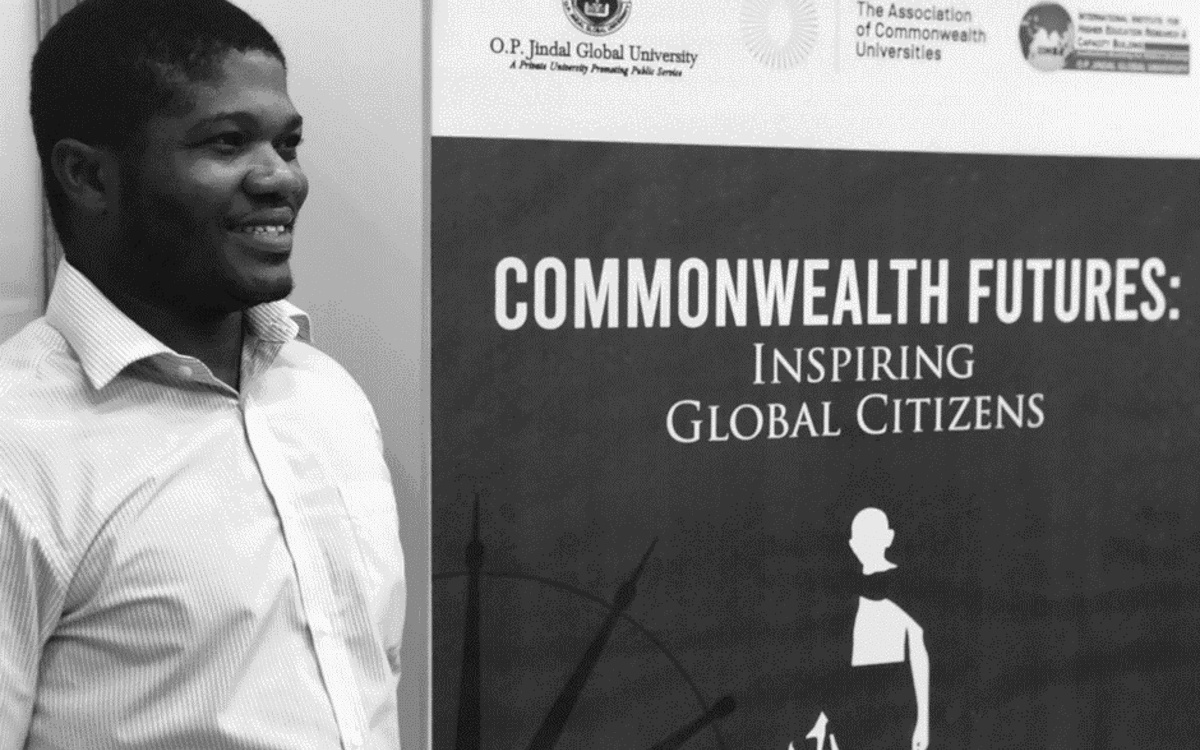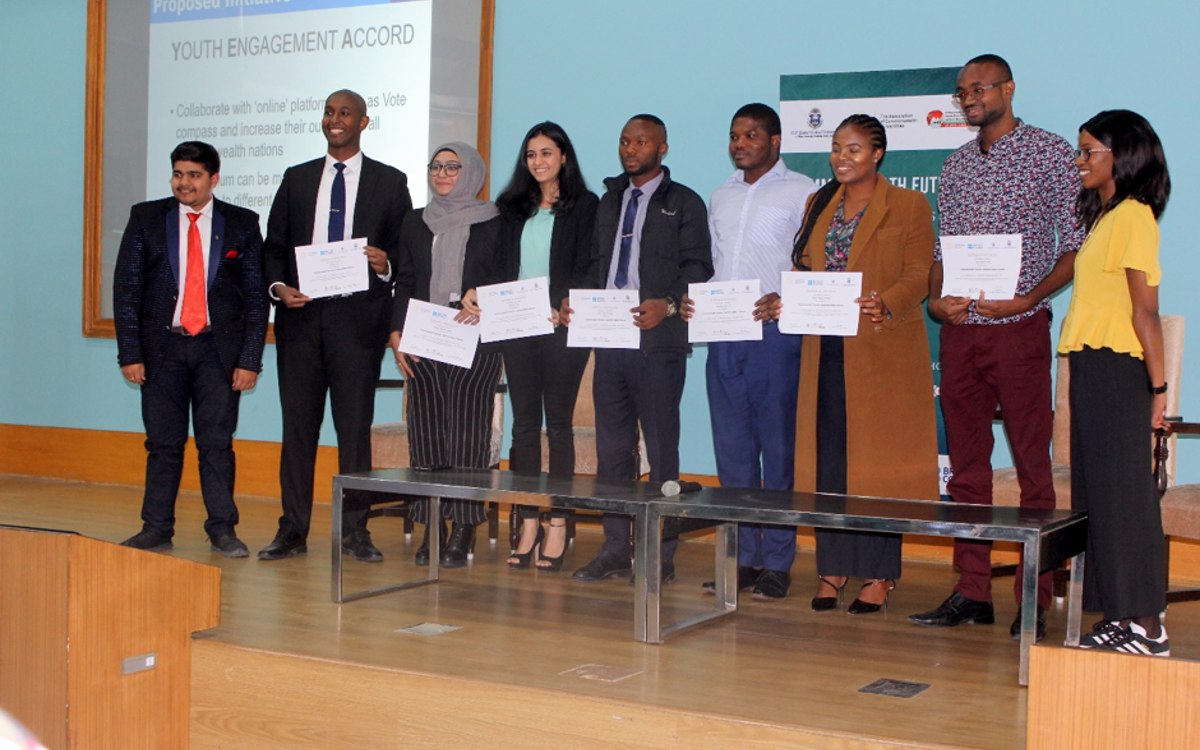
The Commonwealth Futures programme has been of great benefit to me and hopefully all the other students that were present at the workshop. Kudos to the team for putting together such an educative programme and giving us a wonderful experience in India.

During the second semester of my studies at Murdoch University in Perth, Australia, I had the opportunity to serve my university. I lent myself as a Peer Leader to help other international students with my study experience. In my daily interactions with international students from different cultures, backgrounds and faiths, I learnt to appreciate characteristics like respect, understanding and multiculturalism, and how these facilitate the student’s learning experience. These activities made me recognise that I had a role to play in promoting tolerance among students. When I heard of the Commonwealth Futures programme, I applied for it because the theme resonated with what I was already doing and wanted to gain more understanding into the subject of social cohesion and how I can play my part as a student leader. I was delighted when my university nominated me to participate in the programme and I was selected to attend one of the workshops at the O P Jindal Global University in Sonipat, India from 8-12 February 2020.
I attended the workshop with 27 other students from 15 different countries studying in universities across the commonwealth, which are part of the ACU. We engaged in several educative activities including debriefing sessions, panel discussions, group projects and a cultural night. Most of the discussions were based on the philosophies and teachings of Mahatma Gandhi to commemorate his 150th life anniversary. The life and experiences of Gandhi were related to key components of the workshop, from which I drew a few insights. We held extensive discussions on the Gandhian philosophy, and how he perceives the role of the student. I took away 3 important insights, which have added to my thinking;
- In the quest of people discovering themselves, they learn to appreciate, tolerate and respect others. That is why higher education should be designed to help young people discover themselves (self-actualisation), find new interests and realise their potentials. In so doing, they learn tolerance.
- Knowledge is not cut in stone. Knowledge is dynamic. What is vital is being able to critique and make meaning of every piece of information you receive. There are many young people with uncritical minds, who lack originality and exemplarity. Our collective focus should be on educating the youth to think critically and amplifying their duty as citizens.
- Every action is a result of the balance between logic (rationality) and emotions (passion). Within this balance lies the truth, tolerance, acceptance and understanding. As young people, our actions should be driven by the truth, and welfare and justice for all through non-violence.
During the workshop, we were assigned into groups to identify and present solutions to a global challenge related to young people. The problem my group identified was youth civil apathy. Many young people are disengaged from civil and political issues as a result of a wide range of reasons. These reasons include the absence of pro-social behaviour, failed government systems and the youth’s lack of faith in political discourse, limited access to quality education and resources and forced imposition of political identities on young people. Today’s youth need to get involved in civil issues because they need to be aware of policies that impact their lives and their future. They also need to extend their own and/or others’ rights and share responsibility in decisions that influence society. Young people are critical partners in building a community to foster social cohesion and they must not be left out in social issues that affect society.

Our proposed solution to this challenge is an initiative known as the “Youth Engagement Accord” (YEA), which serves to foster the dialogue of healthy, non-violent, knowledge-driven youth participation in civic duties. We proposed that the initiative will function under the guidance and on the shoulders of the ‘Commonwealth Youth Council’, sharing ideologies and recommendations based on concurrent activities within individual societies in different countries. The initiative will operate at different levels by mediating with Commonwealth heads of governments during conferences to proactively address youth dissatisfaction. The voices of young people are important in building social cohesion because just as in the principles of participatory and knowledge democracy, young people’s knowledge is significant and needed to complete the overall “knowledge society” that will build a better world for all.
On a personal level, I will contribute to building social cohesion by using any available opportunity to promote the principles of participatory democracy and non-violence. In all my daily interactions, I will appreciate all forms of knowledge from different sources. Diversity of knowledge is what is needed to build social cohesion so I will encourage other young people to be active contributors of their knowledge to finding solutions to challenges that face their society instead of being passive citizens. My other objective will be to promote non-violence among youth activists. Even though extremism is one key tool that young people use to articulate their viewpoints, they must appreciate that fact that there is always a non-violent response to any situation.
I learnt a lot from the other students who were present at the workshop. They shared varied ideas and experiences, which brought meaning to what the programme sort to achieve. Listening to them and interacting with them on a personal level reemphasised the diversity of knowledge among student leaders across the Commonwealth. It is very important to me that I keep my relationship with this group of students because I gained a lot being with them for just about a week. I would want to collaborate with any of them on future international youth projects that promote youth civil engagements to build social cohesion. In addition to embedding all the key lessons and insights I have gained from the workshop into my daily engagements, I will lend my knowledge to teaching other young people the principles of participatory democracy, knowledge democracy and extremism and non-violence. I believe that the knowledge I have gained is for service to society.
In summary, the Commonwealth Futures programme has been of great benefit to me and hopefully all the other students that were present at the workshop. Kudos to the team for putting together such an educative programme and giving us a wonderful experience in India. I am also grateful to Murdoch University for nominating and supporting me to attend the workshop and to StudyPerth, Australia for all the support they provide to me as an International Student Ambassador.
